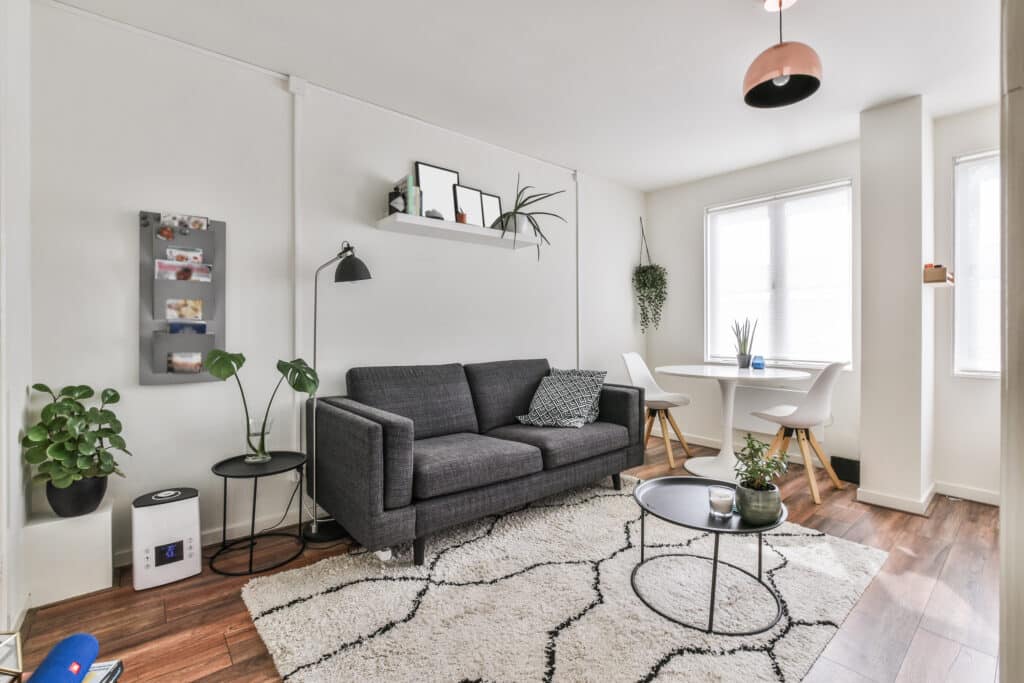Budgeting for an apartment is an important step to make sure you end up in the right living space for you, and making sure you can comfortably afford it. Here’s how to budget for an apartment, with key things to consider and steps to take to make sure your next move is a success.
1. Determine your monthly income
Before you start budgeting for an apartment, you’ll want to have a clear understanding of your monthly income. Calculate your net income (your ‘take home’ pay, after taxes and deductions). Make sure to consider all of your sources of income, like salary, freelance work, or any other money you have coming in on a regular basis. Having an exact figure for your monthly income will be the cornerstone of planning your budget.
2. Define your budget limit
Once you know your monthly income, establish a clear limit for your apartment expenses. Financial experts often recommend that housing costs should not be more than 30% of your monthly income. That includes rent, utilities, and renter’s insurance. For example, if your monthly income is $3,000, you should aim to keep your housing expenses at or below $900.
3. List all apartment-related expenses
Creating a comprehensive list of apartment-related expenses will help you understand the full scope of your financial responsibilities. Consider the following costs:
– Rent: the biggest part of your apartment budget, rent, should be the one you consider most carefully. Research apartment listings in the area where you want to move to get an idea of the average rental rates.
– Utilities: factor in the cost of utilities like electricity, gas, water, sewer, trash collection, and internet. These costs can vary depending on your location and usage.
– Renter’s insurance: it’s wise (and some landlords even require it) to get a renter’s insurance policy to protect your belongings in case of theft, fire, or other unforeseen events. Get quotes from insurance providers to estimate this cost.
– Security deposit: Most landlords require a security deposit, and typically it’s equal to one month’s rent. Make sure you have this amount saved up before you sign a lease.
– Moving costs: Consider expenses related to moving, including hiring movers, renting a truck, or purchasing packing supplies.
4. Prioritize your apartment must-haves
As you search for apartments, prioritize your must-have features and amenities. These could include the number of bedrooms, location, proximity to work or public transportation, and safety of the neighborhood. Having a clear list of priorities will help you narrow down your options and avoid overspending on features that are not essential to you.
5. Account for variable expenses
In addition to fixed apartment-related expenses, account for variable expenses like groceries, transportation, healthcare, and entertainment. Create a separate budget for these categories and allocate funds accordingly. Be realistic about your spending habits and set aside an amount that aligns with your lifestyle and financial goals.
6. Consider long-term financial goals
When budgeting for an apartment, don’t forget to consider your long-term financial goals. Saving for retirement, building an emergency fund, and paying off debt are all important objectives. Allocate a portion of your budget to these goals to ensure you continue making progress while covering your apartment expenses.
7. Factor in maintenance and repairs
Apartment living comes with the convenience of having maintenance and repairs handled by the landlord or property management. However, it’s wise to set aside a small portion of your budget for unexpected expenses like minor repairs or maintenance-related items. This precautionary measure can prevent financial surprises down the road.
8. Shop around for the best deals
Before committing to an apartment, shop around and compare different options in your desired location. Consider factors such as rent, included utilities, security deposits, and lease terms. Look for move-in specials or promotions that can help you save on upfront costs.
9. Create a contingency fund
Building a contingency fund specifically for apartment-related emergencies or unforeseen expenses is a smart financial move. Aim to set aside a small percentage of your income each month into this fund. Having a cushion for unexpected costs can provide peace of mind and prevent financial strain. For some guidelines for creating this type of fund, check out our article on how to create an emergency fund.
10. Review and adjust your budget
After you’ve moved into your apartment, it’s essential to regularly review and adjust your budget. Life circumstances and expenses can change, so it’s important to stay flexible and adapt your budget accordingly. Periodic budget assessments will help you maintain financial stability while enjoying your new living space. A great tool for keeping track of your budget and how much you’re spending on various categories is Brigit’s Finance Helper.
The bottom line: how to budget for an apartment
Budgeting for an apartment takes careful consideration and planning. By figuring out your monthly income, setting a budget limit, listing all apartment-related expenses, and prioritizing your must-haves, you can make informed decisions about your housing while staying within the bounds of what you can afford. Remember to account for variable expenses, consider your long-term financial goals, and create a contingency fund to cover unexpected costs. By doing all of this, you can make sure you’ll find the right apartment for you, and one that provides both comfort and financial peace of mind.










